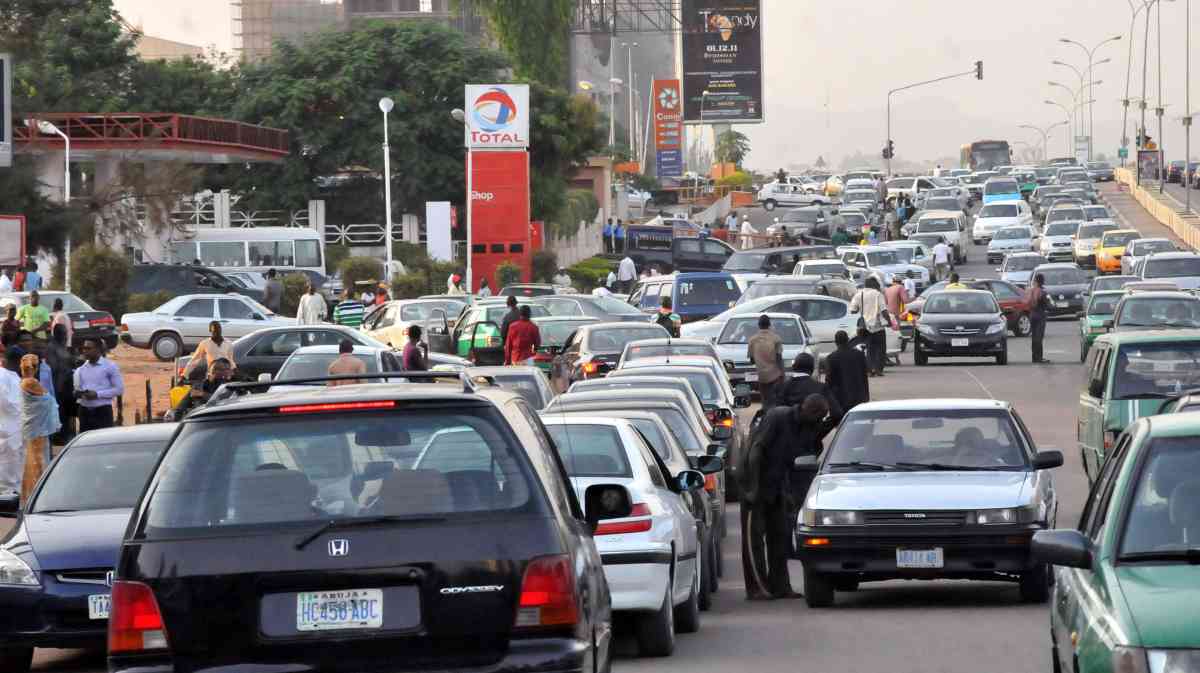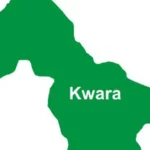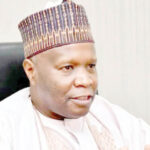Nigerians are yet to see the last of petrol scarcity as transport fare has risen while marketers have blamed the scarcity across Lagos, Abuja, Kano and other places on NNPC for cutting the daily petrol supply.
The scarcity resurfaced in Lagos after the independent marketers under the aegis of the Independent Petroleum Marketers Association of Nigeria (IPMAN) on Monday said it was no longer sustainable to sell petrol at the official price of N162 to N165 per litre.
- ‘Inflation, insecurity making life tough for Nigerians’
- Is Nigeria’s economy in better shape than in 2015 as claimed by President Buhari?
Queues as motorists hike fare
In Lagos, Daily Trust checks indicate that the scarcity has caused transport fare increase by about 100 per cent as drivers said they spent more hours at the stations to queue for fuel.
A motorist at a Rainoil Filling Station on Acme Road, Ibrahim Shehu, said he queued from 7am but that after five hours the station was yet to begin selling petrol.
Those who can’t wait resort to buying at the black market for N2500 to N3,000 for a five-litre content or buy from stations selling for N170 to N200 in Lagos and Abuja. The result is a hike in transport fare by 100 per cent on some routes. For instance, passengers now pay N200 from Ikeja to Adeniyi John instead of N100 on a minibus. Also, minibus and tricycle from Ikeja to Ogba costs N250 as against N150. From Berger to CMS/Obalende and Alausa to CMS/Obalende cost N500 as against N350.
In Abuja, the fare had risen by 25 per cent as of Tuesday with a N50 price increase within Abuja city centre.
A trip from Lugbe which was N200 is now N250. Also, from Berger Junction to Kubwa N250 from N200, while to Bwari is N300 from N250.
A commercial driver, Semiu Ajibola, at the popular Jabi Park, said the transport fare from the park to Nyanya and Mararaba in Nasarawa State was now N500, up from N300.
He said, “The hardship is too much, some of us sleep in filling stations only to get fuel and we have no option than to hike the price.”
A resident of Bwari Area Council, Mustapha Idris, said drivers now charge N600 instead of N400 from Bwari to the city centre (Berger), while charging N400 from Kubwa instead of N250. From Suleja passengers now pay N700 instead of N450.
In Kano, Daily Trust observed queues at the few stations selling petrol at N165. There were others selling from N180 to N220 per litre, while there was a transport fare hike by an average N50 within the municipality.
NNPC cut supply over fear of diversion
The fresh scarcity, it was learnt, began after NNPC was asked to cut the product’s supply from about 103 million litres daily to 60 million.
“It was about two weeks ago when PPMC, the product supply arm of NNPC Ltd, queried the rising daily petrol consumption reaching 106 million litres a day and they said it could not continue because they believed the products were continually smuggled to neighbouring countries.
“They shortened the allocation to marketers, saying they were maintaining an estimated 60 million litres threshold in line with the subsidy budget,” noted an official in the sector.
As of June 12, NNPC, in its loading update, said about 65.24 million litres of petrol was loaded daily with 456m litres lifted in one week from over 60 private depots dominated by Aiteo, AA Rano, AYM Shafa and Masters Energy.
Daily Trust further reports that this same situation happened in June, 2021, when the federal government directed the then Nigerian National Petroleum Corporation to cut down the consumption rate of petrol from 102 million litres to 60 million litres daily.
As of last week, marketers had also complained of high rates of wholesale price at the private depots, saying NNPC had no stock in its own depots which used to sell at N148/l, while the private depots sell at nearly N162/l.
Tanker owners and drivers also said loading of petrol from Lagos was hampered due to shortage of funds to buy diesel for trucks at over N800/l.
Last Thursday, the Nigerian Midstream and Downstream Petroleum Regulatory Authority (NMDPRA) approved a higher freight rate to solve that, raising the freight rate from N25/km to about N35/km, said the marketers.
What FG should do – Marketers
To douse the fuel scarcity and resolve the issues, the Lagos State Chairman of IPMAN, Mr Akinrinade Akinade, asked the federal government to ensure petrol was sold at N148.17k per litre as the ex-depot rate, especially at the private depots which sell at N162.
He said, “If the government through PPMC will supply us directly as marketers and we are made to pay the amount on the government’s template, which is N148.17k, there is no way we won’t sell at N165, but the current price of N162 which private depots are selling is not sustainable. We cannot sell at N165 with that price.”
On their part, the Major Oil Marketers Association of Nigeria (MOMAN) has urged all its members to continue to sell petrol at the approved pump price of N165 per litre.
The Executive Secretary of MOMAN, Mr Clement Isong, said, “Our members will continue to sell petrol at the approved price of N165 per litre. We have no plan to increase our pump price.”
Why I retained subsidy – Buhari
Meanwhile, President Muhammadu Buhari yesterday defended his decision not to heed the calls by the International Monetary Fund (IMF), World Bank and other leading economists to remove fuel subsidy.
The president spoke on the matter in an interview he granted Bloomberg.
He said the Western allies were now learning the hard way what looked good on paper but with human consequences if implemented.
Buhari said, “Most Western countries are today implementing fuel subsidy. Why would we remove ours now? What is good for the goose is good for the gander.”
He said until there was internal production for refined products and boosted capacity (Dangote Refinery, BUA Group Refinery and Waltersmith Refinery) which was on going, as well as stable foreign exchange (forex) rate, it would not be appropriate to remove subsidy.




